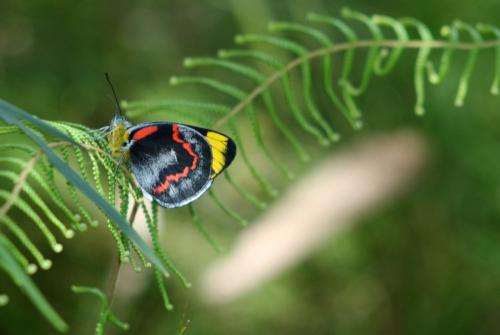Counting species an inaccurate science

Species could be going extinct right under the noses of scientists without them realising, researchers have found.
Dr Martin Westgate from the Fenner School and Environment and Society led the group that concluded that methods for measuring the full gamut of animal species in a particular location are flawed. This means that efforts to protect endangered species may not be as effective as they could be.
"Our study shows methods for measuring biodiversity are built on assumptions that do not hold in all circumstances, and this might lead to poor environmental decisions," said Dr Westgate, lead author of the paper published in Nature Communications.
"For example, poor measurement might cause us to think that biodiversity is stable or increasing, when in fact some species are in decline."
To date around 1.5 million species have been described on Earth, but many more remain undocumented. Estimates of the total number of species on our planet vary widely, but have been as high as 100 million species, any of which could hold the key to a new cancer cure or painkiller. Without knowing where these species can be found, preventing them from going extinct can be difficult, or even impossible.
In the absence of complete data about species' distributions, policymakers are forced to estimate areas of high biodiversity through a range of techniques. One method is by counting a well-known group, such as birds, and assuming they represent the diversity of other groups.
The group compared many of these different estimation methods, by whittling over 8,000 biodiversity papers down to 81 papers that could be directly compared.
The comparisons found a serious lack of consistency between the different assessments of biodiversity. In particular, they found that studies at different latitudes or spatial scales rarely find similar results, even when they consider the same groups of plants or animals.
"New methods are needed for understanding biodiversity," Dr Westgate said.
Co-author Dr Philip Barton said biodiversity loss is a global problem with huge implications for human well-being.
"But so much science is being produced around the world that it can be difficult to see the big picture," Dr Barton said.
"Measuring biodiversity and understanding how it is distributed across the globe is a complex science, and our study shows us where more work needs to be done.
"Our results were very surprising, but they open up huge possibilities for future research."
Journal information: Nature Communications
Provided by Australian National University





















